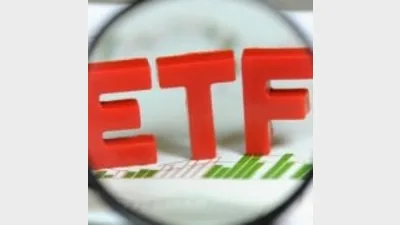Where are the sustainable ETFs?



There is a dearth of ethical and sustainable products in the exchange traded fund (ETF) market with just nine new products launched in the past five years.
According to Morningstar’s latest ETF Investor report, UBS launched six ethical ETFs in 2015 but, five years later, assets sit at just over $400 million, less than $70 million per strategy.
Other companies have been reluctant to follow suit with only nine new products launched since 2015 in comparison to active counterparts.
The largest of these were the Betshares Australian Sustainability Leaders ETF and Global Sustainability Leaders ETF from BetaShares, launched in 2017, which held $1.1 billion, more than half of assets into the nine new sustainable ETFs which totalled $1.6 billion.
Other smaller ETFs included the Van Eck Vectors MSCI Australian Sustainable Equity ETF, Van Eck Vectors MSCI International Sustainable Equity ETF, InvestSMART Ethical Share ETF, Russell Investments Australian Responsible Investment ETF, and the Vanguard Ethically Conscious International Shares ETF.
Out of the 22 ETF products launched in 2019, only one, InvestSMART Ethical Share ETF, was in the ethical or sustainable space.
Morningstar said: “This mild take-up could be due to the lower penetration of environmental, social and governance strategies into portfolios, a lack of familiarity with the product set, their relatively short performance histories and fee levels higher than their passive peers”.
In contrast, the overall Australian ETF market saw significant growth with assets rising 52% in 2019 alone to reach $61 billion and 213 different products.
Research house, Cerulli Associates expected sustainable investments to continue growing strongly.
It found that 88.2% of Australian institutional investors named ESG integration as their most preferred method of incorporating ESG considerations into investment decisions, followed by negative/exclusionary screening at 82.4%. Only 42.9% of the negative/ exclusionary screeners excluded fossil fuel companies but the recent bushfires could be a game changer for climate change considerations.
“Cerulli also expects ESG ETFs to maintain their strong growth, as they offer simple, liquid, and cost-effective ways of investing sustainably and ethically,” it said.
Cerulli Associates analyst, Siau Kean Yung, said: “Apart from having strong track records in sustainable investment fund performance, going forward, managers should maintain robust ESG screening processes as investors’ awareness increase.
“Window dressing products or marketing products that do not have rigorous ESG screening processes in place will not satisfy those who are seeking sustainable and ethical investments.”
Performance of BetaShares Australian Sustainability Leaders and Global Sustainability Leaders ETFs over one year to 31 January, 2020.
Recommended for you
Schroders has appointed a new chief executive as Simon Doyle steps down from the asset manager after 22 years.
Distribution of private credit funds through advised channels to retail investors will be an ASIC priority for 2026 as it releases the results of its thematic fund surveillance and guidance for research houses.
State Street Investment Management has taken a minority stake in private market secondaries manager Coller Capital with the pair set to collaborate on broaden each firm’s reach and drive innovation.
BlackRock Australia plans to launch a Bitcoin ETF later this month, wrapping the firm’s US-listed version which is US$85 billion in size.












